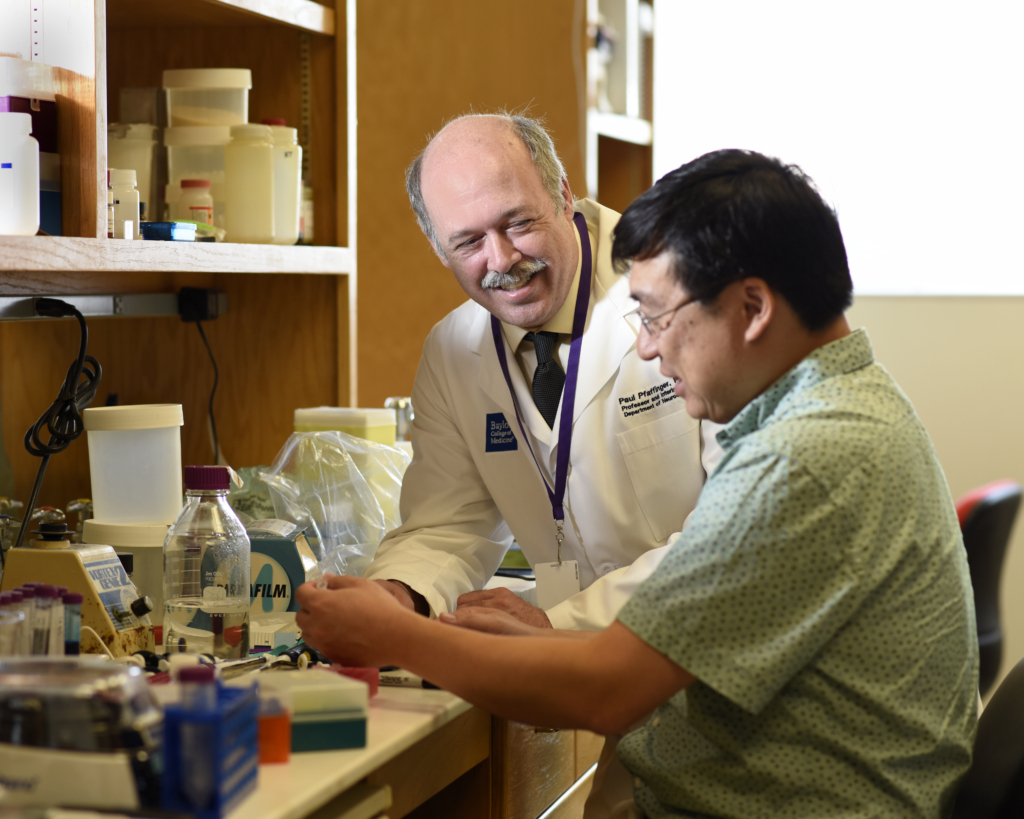
New Neuroscience chair believes in connections to fuel tomorrow’s health breakthroughs
Connection has been a strong theme throughout the career of Paul Pfaffinger, Ph.D. — from his own study of neuroscience to serving as chair of the Department of Neuroscience at Baylor College of Medicine.
“The brain and nervous system connect all parts of the body and are involved in every sensation you feel; therefore, neuroscience is involved in everything,” said Dr. Pfaffinger, who holds the Wilhelmina Robertson Distinguished Chair in Neuroscience and was announced as the Neuroscience chair in February 2023.
While pursuing his Ph.D. at the University of Washington, Dr. Pfaffinger realized early on the importance of making connections and collaborating with colleagues in different disciplines to accelerate his own research.
“We ended up collaborating and writing a really important paper, which was my first publication, and that really launched my career,” Dr. Pfaffinger said.
From there, Dr. Pfaffinger pursued postdoctoral work in molecular neuroscience at the University of Columbia under Nobel Prize-winning neuroscientist Dr. Eric Kandel. His success there eventually led him to Baylor.
“What was exciting was that Baylor had an integrative neuroscience department, not just cellular neuroscience or systems neuroscience,” Dr. Pfaffinger said. “It was trying to build a comprehensive neuroscience community where people would talk to each other and understand what was going on.”
More than 30 years later, Dr. Pfaffinger still believes in connections — aiming to create an environment where talented individuals are encouraged to collaborate, critical to attracting impressive investigators conducting trailblazing work.
For example, Kara Marshall, Ph.D., assistant professor of Neuroscience, and Shelly Buffington, Ph.D., assistant professor of Neuroscience, are studying interoception, a cutting-edge field studying how the nervous system deciphers the myriad of sensations generated from within the body. Dr. Marshall’s work focuses on mechanical force sensation, the little-understood process behind critical everyday functions like hunger cues. Dr. Buffington’s work examines how a mother’s gut microbiome and other environmental factors can influence the development of neurodevelopmental disorders in her children.
“Just as the nervous system connects the parts of the body, the Department of Neuroscience connects the different parts of Baylor’s community,” Dr. Pfaffinger said. “We’re helping to build a stronger and more supportive environment so we can produce that next big breakthrough for patients.”
To learn more about the Department of Neuroscience or make a gift, click here.


